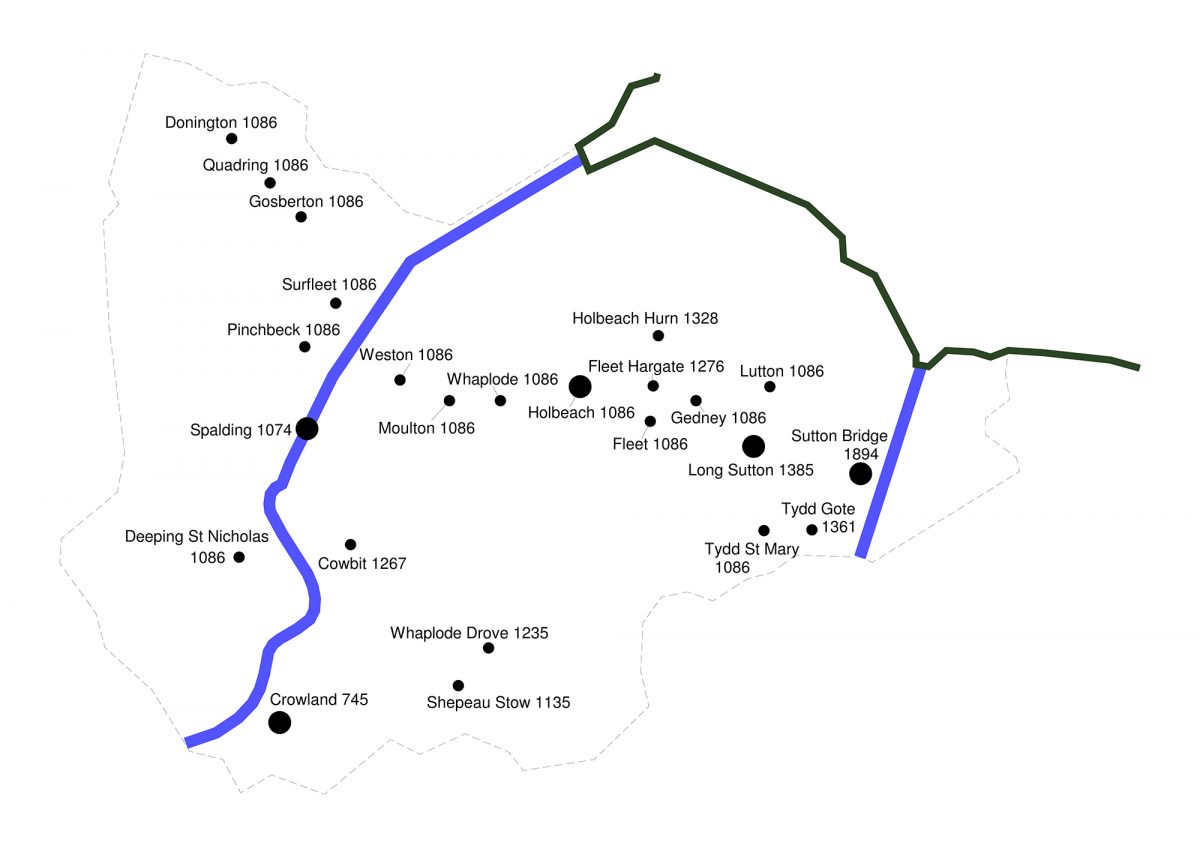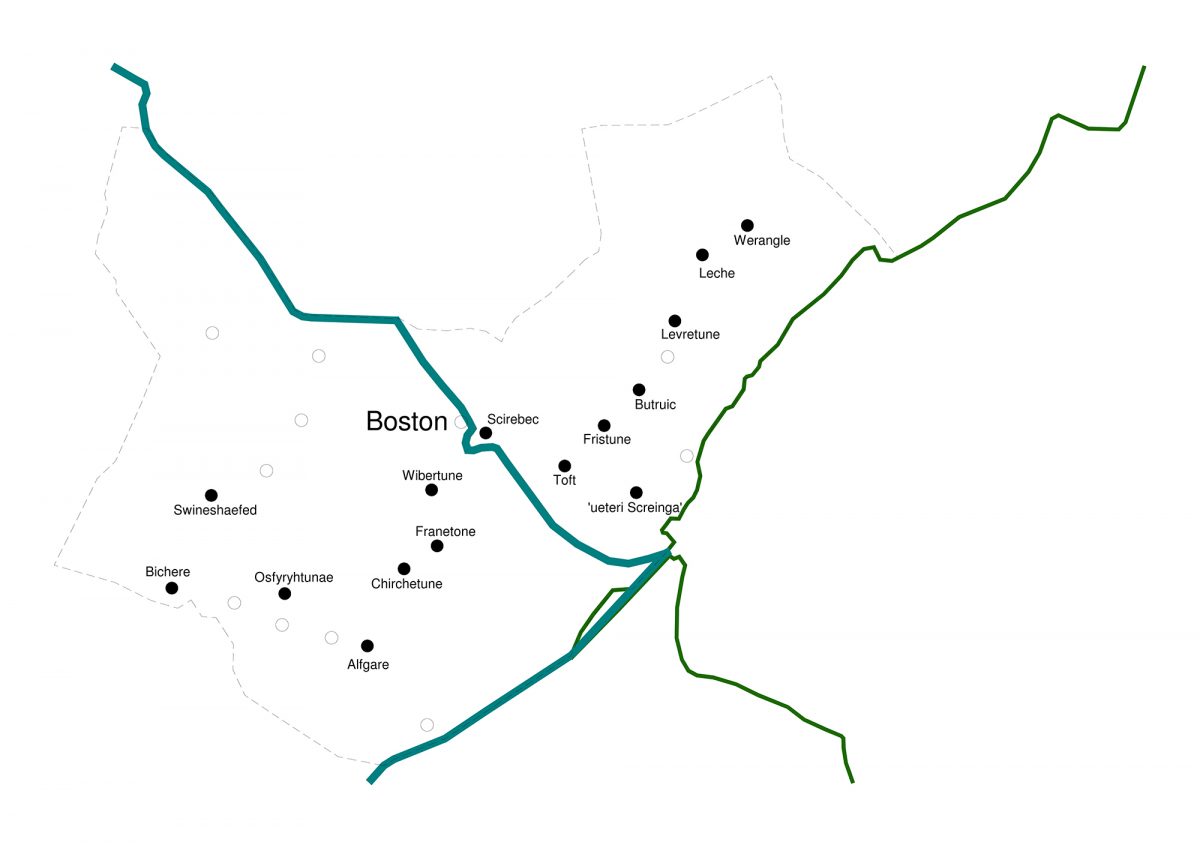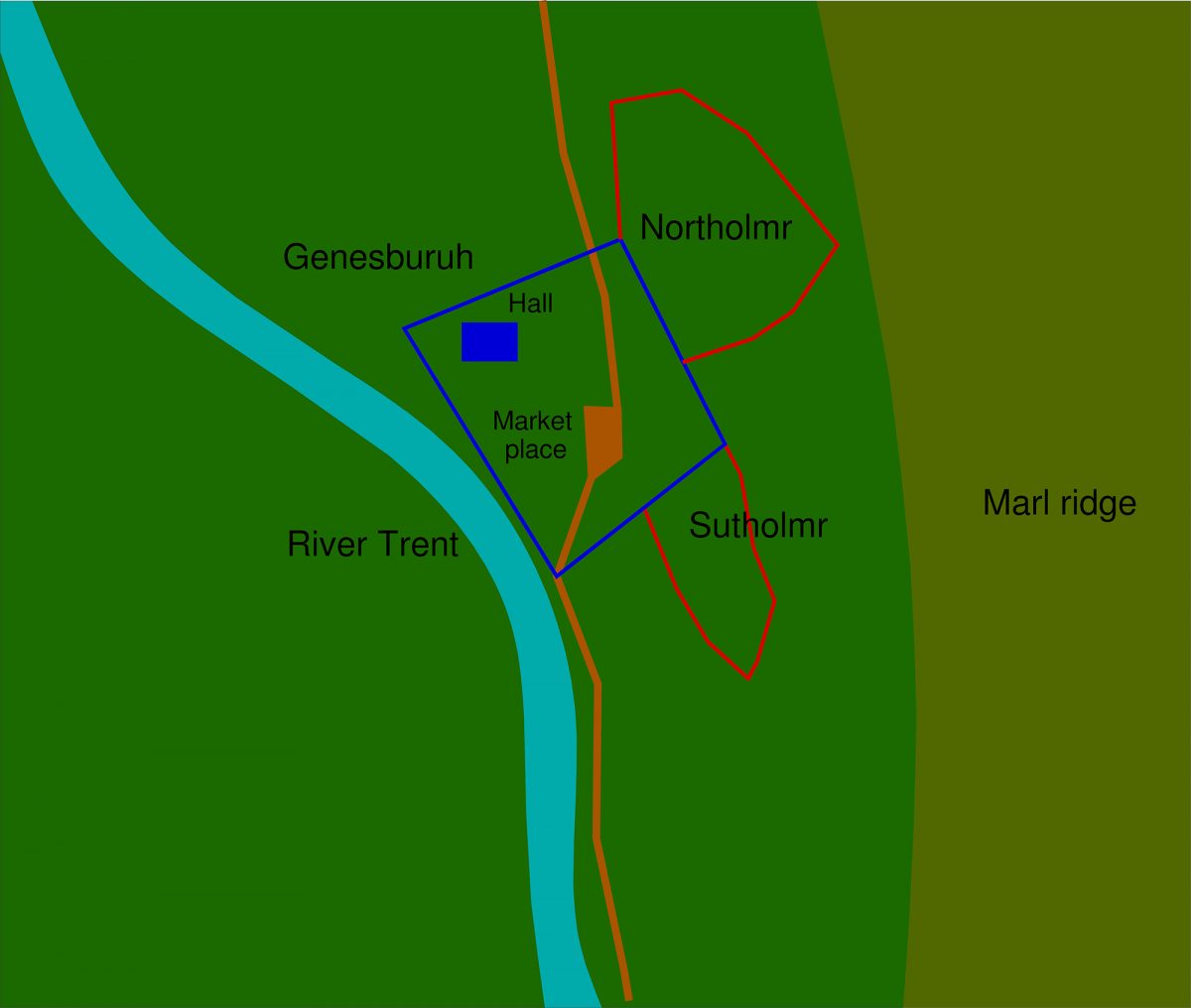Place Names
Discovering the Medieval Origins of your Village
Topic 1: Place Names
The first thing to look at is the place name.
The origin and meaning of a place name, whether it is a city, town, village, street or field, can provide important clues about the history of a place. The English Place-Name Society has compiled considerable research on the origins and history of place-names, including field names and has published a Dictionary of Lincolnshire Place-Names.
Lincolnshire place names

Map of Holland showing the dates that villages are first recorded.
In Lincolnshire, the majority of the names are of Anglo-Saxon or Viking origin. This is hardly surprising given the county’s position on the east coast. However, there are a few older place names such as Lincoln, which is derived from the ancient British word for a pool.
Anglo-Saxon place name elements such as burh, ham, ingham and tun can be found across the county usually associated with either Saxon personal names or the names of a significant local feature or landmark. For example, Heapham is derived from the Anglo-Saxon place name Iopeham and means a homestead where there are dog roses. The ingham suffix usually refers to the home of the ingas or people, usually associated with a personal name. Willingham, for example, was the home of the people (followers or family) of Wifel an Anglo-Saxon.
Mixtures of names
With larger settlements, examining locations within the settlement can also be indicative of the way the settlement has developed. For example, Gainsborough was named after a defended place (or burh) dating from the Saxon period. But adjacent to the ancient core of the town are two suburbs Northolme and Southolme, which are derived from the Viking term for reclaimed land.

Map of Boston showing Anglo-Saxon and Viking place names.

Schematic showing relationship of Viking suburbs to the Saxon Burh at Gainsborough.
Old Norse
In the early medieval period, a number of village names appear that were derived from Old Norse field names such as toft, garth, stead and kirk.
Old street names derived from the Old Norse suffix gate can also indicate early road layouts.
